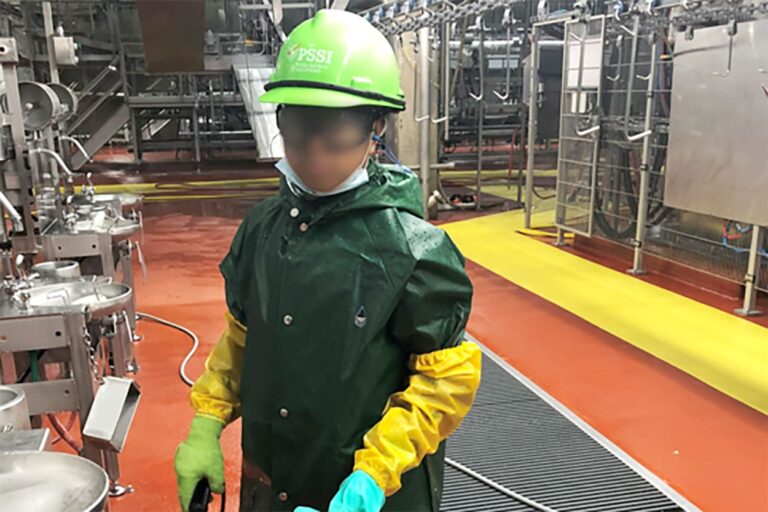Trustees of U.S. public pension funds, which manage more than $3 trillion in assets, are stepping up their scrutiny of labor practices at companies owned by private equity firms. Report from the nation’s second-largest teachers union Details of recent misconduct at companies acquired by the 10 largest corporations.
The report, released Tuesday by the American Federation of Teachers, which represents 1.7 million educators, health care workers and government employees, focuses on problematic labor practices at companies owned by the nation’s largest private equity firms. Citing mass layoffs, forced labor, child labor and anti-union activism, the report says the practices pose financial risks to pensioners who use their retirement savings to fund private equity ventures.
“AFT fights every day to protect workers’ retirement security,” union President Randi Weingarten said in a statement, “but that future and our investments cannot depend on practices that harm our fellow workers in the name of profits.”
More than 50 AFT members serve on 27 public pension fund boards that oversee trillions of dollars in investments. The council, known as the AFT Trustees Council, reviewed the report’s findings at the union’s annual conference in Houston this week. A key takeaway from the report is that pension fund trustees must pressure private equity firms to do better for the employees of the companies they own. Doing better for employees will lead to better investment returns, the report argues.
Private equity firms use debt to buy companies, hoping to sell them at a profit after a few years. Independent academic studies have found that such leveraged buyouts result in far more bankruptcies than less-leveraged acquisitions, and the deals can lead to significant job losses for ordinary workers. About 12 million people are employed by private-equity-backed companies, the research firm said. American Investment CouncilIndustry lobbying group.
Among them are employees of Packers Sanitation Services, a slaughterhouse cleaning company owned by the New York-based private equity giant Blackstone Group. Last year, the Department of Labor found that PSSI employed more than 100 children, some as young as 13, to clean facilities in the Midwest, NBC News reported. Blackstone, which appointed executives to PSSI’s board after buying the company, said it did not know children were employed to clean slaughterhouses. PSSI also said it did not know the employees were children and that it has a “zero tolerance policy for the employment of anyone under the age of 18.” The company paid a $1.5 million fine.
Public pension funds such as the California Public Employees’ Retirement System, the Texas Teachers’ Retirement System, and the New York State Common Retirement Fund have poured billions of dollars into private equity to generate investment returns for retirees. But recently, private equity’s huge returns have been declining, and rising interest rates are causing problems for companies with heavy debt. In addition, private equity firms are struggling to sell the companies they own because the initial public offering market is inflexible and interest rates are hurting companies’ operations. This has prevented investors from selling shares, raising questions about the industry’s business model.
Last week, Texas’ $200 billion teacher retirement system Reduced investment Private equity investments increased by $10 billion this fall, and other pension funds are also increasing their bets.
The AFT report, titled “Managing Labor Risk in Private Equity,” details the recent bankruptcy of Steward Healthcare, a 31-hospital system that was owned by private equity. The 10 private equity firms mentioned in the report include some of the nation’s largest and most prestigious, including Apollo Global Management, Blackstone, The Carlyle Group and KKR.
Apollo, Carlyle and KKR did not respond to emails seeking comment.
“As the report outlines, caring for the welfare of our portfolio companies’ employees is fundamental to building a successful business and consistent with our fiduciary duties,” a Blackstone spokesman said in an emailed statement, adding that Blackstone “is firmly opposed to child labor violations.”
The report highlighted the PSSI issue as an example of a positive outcome amid growing scrutiny of private equity-backed companies. After the Department of Labor action and media coverage, Blackstone reached an agreement with the United Food and Commercial Workers union to provide union representation at PSSI sites. Under the agreement, about 1,200 workers — more than half of them slaughterhouse cleaners — gained union membership and were given higher wages, improved benefits, and health and safety regulations, according to the AFT report.
The AFT said it produced the report at the request of its members, who are public pension trustees, who say they often lack insufficient information to understand the risks of pension investments and fulfil their fiduciary responsibilities – something that is particularly common with opaque private equity investments.
“We need more transparency. You can’t really make good fiduciary decisions if you don’t know who your fiduciaries are,” said Jacqueline Price Ward, vice president and investment chair of the $12.6 billion Chicago Teachers Retirement Fund. Speaking for herself, rather than the board as a whole, she added: “They don’t want us to know, but we have to find a way to know. I want to see the other side of the snake in every arena.”
The Chicago Pension Fund has provided benefits to the city’s public school teachers since 1895. Ward said: 8% Allocation Return private equity investment to 5%.
“Will we be successful?” asked Paula S. Barajas, a trustee of the Chicago Pension, again speaking for herself and not the board. “It depends on each and every trustee across the country. Success depends on how far trustees are willing to toe the line.”



